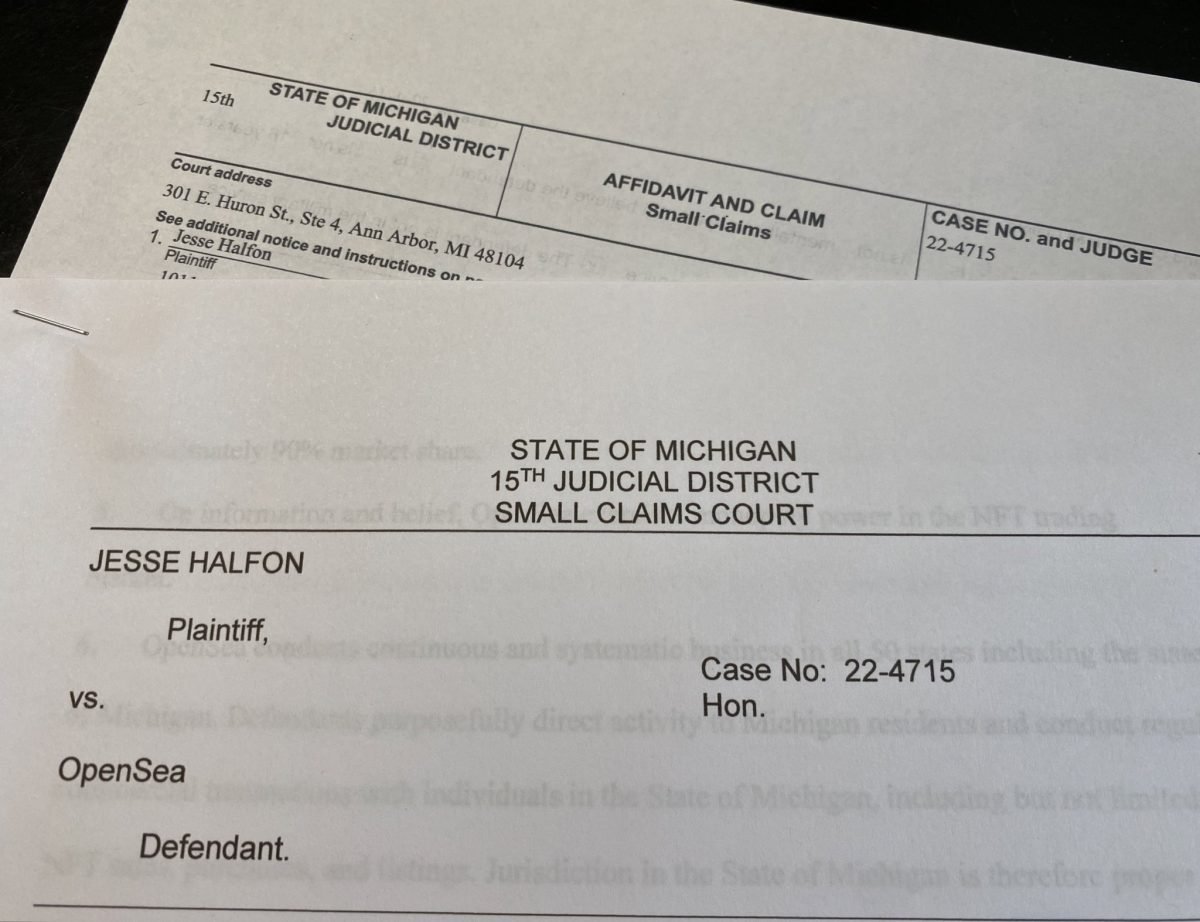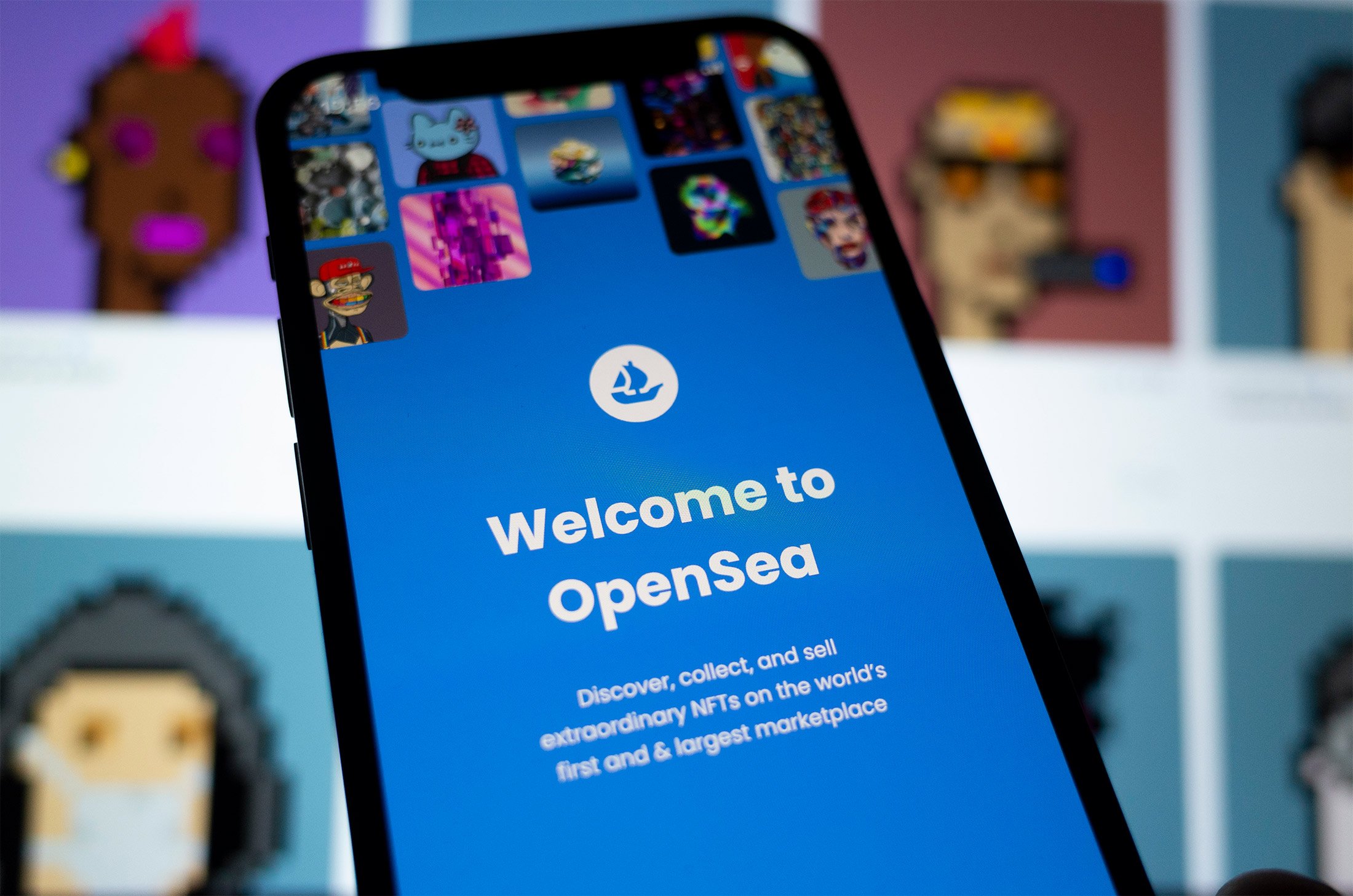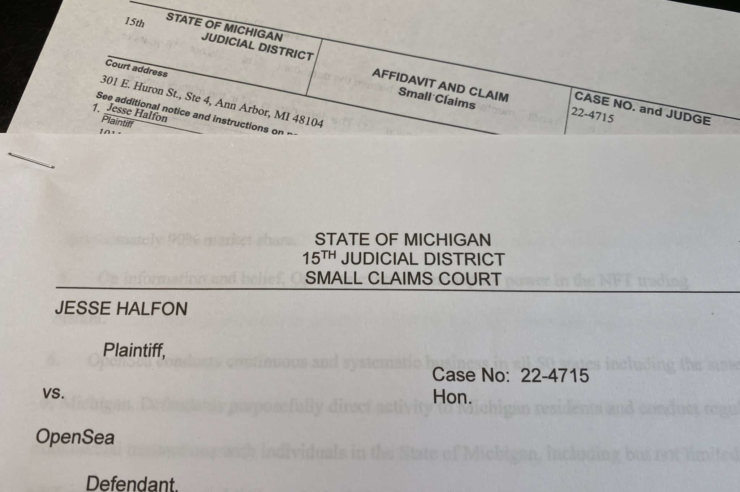The world’s largest NFT marketplace, OpenSea, is facing a lawsuit over its stolen NFT policy. Jesse Halfon is leading the case against the company. Notably, he is an attorney/strategic advisor for NFTs, DAOs, and deals with IP Law for creators & platforms. In response to the announcement, others have asked to join the lawsuit against OpenSea. Although it is not a class action right now, the support of the wider community suggests it could become a possibility.

The lawsuit against OpenSea for its stolen NFT policy
The lawsuit by Jesse Halfon against OpenSea focuses on its NFT policy regarding how it deals with ‘stolen’ NFTs. This is not the first time that the policy has come under scrutiny.
The policy has been the subject of frustration and concern from large numbers of the NFT community. With this official lawsuit ongoing, it will also be interesting to see if there is any change from OpenSea.
In a tweet, @JesseHalfon announced the lawsuit, with the accompanying document, filed in the State of Michigan. He said, “Filed a lawsuit against @opensea today based on their ‘broken’ stolen NFT policy. I believe this template could be the impetus which forces a long overdue change to the system.”
How does the lawsuit against OpenSea work?
Like many others in the NFT community, Jesse is fed up and wants a change in policy from OpenSea. To do this, he has filed a lawsuit via the small claims court to take action. Furthermore, Jesse hopes this will be a wake-up call to the hugely popular NFT platform.
Because of the OpenSea terms and conditions, the lawsuit against their stolen NFT policy is for arbitration. Most online user agreements state that people must resolve claims this way.
NFT community members hope to join the OpenSea lawsuit
Although many people have asked to join the lawsuit, taking class action is also tricky. Significantly, the OpenSea terms also ban class action suits. The terms state, “All claims and disputes within the scope of the arbitration agreement must be arbitrated on an individual basis and not on a representative or collective class basis.”
However, in later tweets, Jesse stated that although this does make the possibility of a class action case unlikely, it is not impossible. He also hinted that he has some ideas on how to work around the terms of service for a class action lawsuit against OpenSea.

What is the OpenSea stolen NFT policy?
The official OpenSea policy prohibits the sale of stolen NFTs and does not allow these items on the platform. They state, ‘We take allegations of theft seriously, and when we are notified of potentially stolen items, we disable the ability to buy, sell, or transfer the items via OpenSea to make sure we comply with legal requirements protecting users.’
Of course, it is essential to protect people’s assets, and at the heart of it, that is what OpenSea is trying to do. But, many in the NFT community are concerned about how the policy works.
Issues with the NFT policy
Some people have found their NFTs locked and are now unable to sell them. It is usually because previous owners of those NFTs have contacted the marketplace and identified them as stolen.
Unfortunately for the people that now own the NFT and had no part in the theft, they are currently unable to sell their NFT. What’s more, the overall value of these NFTs stuck in limbo is in the tens of millions of dollars.
The OpenSea lawsuit aims to address these issues and make all parties happy. Hopefully, now the conversation is happening across social media, OpenSea will look at how they can move forward with the policy.
All investment/financial opinions expressed by NFTevening.com are not recommendations.
This article is educational material.
As always, make your own research prior to making any kind of investment.






















Comments (No)